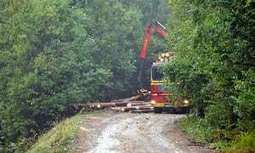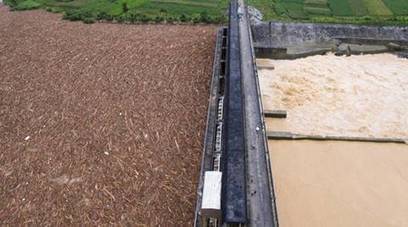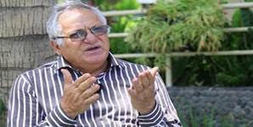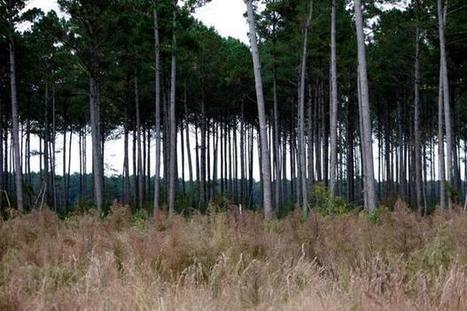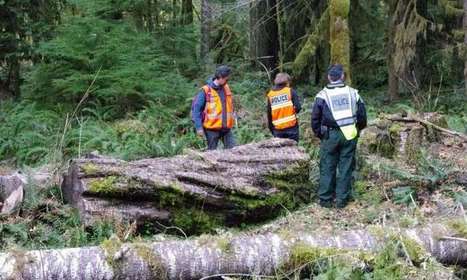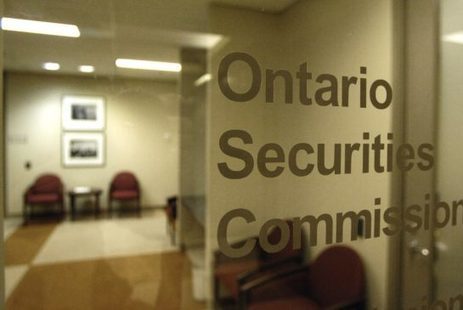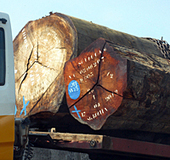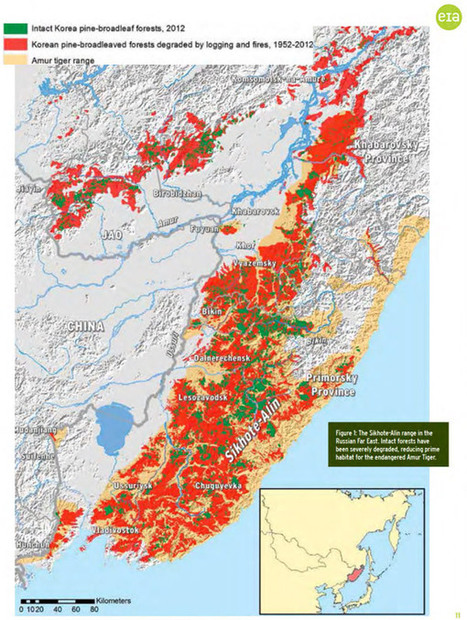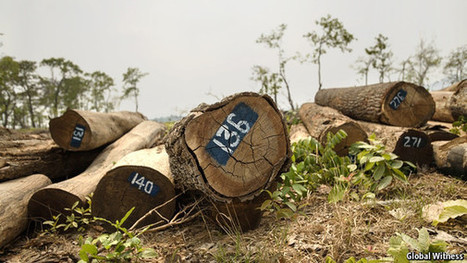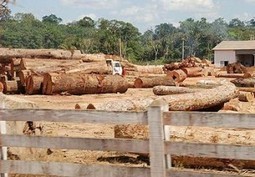 Your new post is loading...
 Your new post is loading...
The federal court-appointed receiver in a $100 million Mississippi Ponzi scheme case is holding the state's most prominent law firm and others responsible for "contributing" to its facade out of a desire for profits.
A federal complaint says Butler Snow and the founder and president of Butler Snow Advisories Services LLC, Matt Thornton, as well as Brent Alexander and Jon Seawright of the law firm Baker Donelson, spent months assisting Lamar Adams and Madison Timber, where they overlooked or failed to examine the fraudulent business practices of the company, which should have been obvious to the high-powered law firms.
Alysson Mills, the court-appointed receiver in the case, wants to hold those parties liable for payment of damages as she seeks to recoup money for duped investors. In the complaint, she maintains Butler Snow and Baker Donelson should be held liable for the "negligent and reckless acts of their agents."
The connection between the law firm representatives and Madison Timber further gave the company a legitimacy that led to additional investors being duped, the complaint says.
Romania’s security forces have mounted a series of raids to break up an alleged €25m illegal logging ring, in what is believed to be the largest operation of its kind yet seen in Europe. Officers from Romania’s Directorate for Investigation of Organised Crime and Terrorism (DIICOT) swooped on 23 addresses – including factories owned by the Austrian timber group Schweighofer Holzindustrie, according to local press reports. A government statement yesterday said that they had “reasonable suspicion that, since 2011, several individuals have constituted an organised criminal group, the members of the group acting to hijack public auctions organisation at the level of forestry departments.” Some civil servants were also involved in the “tree-cutting offences,” the release said. The case involves deforestation in the Carpathian mountains which shelter some of Europe’s last virgin forests – similar in nature to Poland’s Białowieża but on a larger scale. *** David Gehl, the Environmental Investigation Agency (EIA)’s Eurasia programmes coordinator, told the Guardian: “This is the first time that a company has really been held to account for illegal logging on this scale in Europe. It sends a huge signal to the timber industry that illegal logging in Europe’s last great ancient forests will have consequences.”
U.S. Senate Roger Wicker is one of the investors that a Madison businessman is accused of bilking in what authorities call a Ponzi scheme involving more than $100 million. Arthur Lamar Adams, 58, is scheduled to enter a guilty plea Wednesday. Adams is accused of defrauding at least 250 investors in at least 14 states. He is charged with two counts of wire fraud and one count of bank fraud.
***
The Associated Press on Thursday reported that Wicker invested through the Alexander Seawright Timber Fund LLC, incorporated by noted Jackson lobbyist Brent Alexander and attorney John Seawright, who both work for the Baker Donelson law firm. A firm spokeswoman told the AP that Baker Donelson did not represent Adams and the work was personal business of Alexander and Seawright. Charges against Adams say he paid $4 million in commissions to two unnamed recruiters. Adams' company bought timber rights from landowners and then sold the rights for higher prices to lumber mills. The investors were to provide their money for loans to purchase the timber rights. Adams entered into investment contracts with investors, promising a 12 to 13 percent interest rate return over roughly a year. But federal prosecutors and regulators say it was all a lie and nothing more than a Ponzi scheme. Adams created false timber deeds and required investors not to file their timber deeds unless his company defaulted on the loan agreement by failing to make a payment. Prosecutors say Adams was using money from investors to pay other investors or by obtaining bank loans. At one point, his company, Madison Timber Properties, had less than $1,000 in accounts.
A rise in Chinese companies operating in Cameroon’s timber sector, combined with weak law enforcement, have fuelled a surge in illegal logging that is fast depleting the nation’s forests, experts warn. But the government is hoping a new association it has set up for Chinese firms exploiting forests will strengthen links with officials and enable those companies to work within the law.
Every night, trucks laden with logs negotiate hundreds of kilometres of bumpy earth roads, headed to the port in Douala, Cameroon’s commercial capital, where the wood – some of it logged illegally – is shipped to foreign markets.
“We have observed a surge in timber trade activities with the increased presence of Chinese business operators in the sector,” said Bernard Njonga, coordinator of Cameroon-based NGO Support Service for Local Development Initiatives (SAILD). “The illegal forest exploitation and logging business has been compounded by weak laws applied to some groups of persons and not others,” he added.
Illegal timber smuggling is devastating the lush Casamance region of Senegal and could strip it completely within two years.
That’s the predication of Senegalese environmentalist and former minister Haidar El Ali.
Casamance in southern Senegal contains the country’s last remaining forests, an area of 74,000 acres that could be depleted by 2018 as smugglers feed the demand for rosewood furniture in China, said El Ali.
Exporting timber from Senegal is illegal, so traffickers smuggle it to neighboring Gambia for shipping to China.
Gambian exports of rosewood to China totaled $238.5 million between 2010-2015, the second highest in West Africa after Nigeria, he said. Gambia has only 4,000 hectares of forests.
“This unacceptable trafficking is devastating for our forests and it has to stop,” Haidar told a news conference.
***
A criminal complaint filed under seal in U.S. District Court in Concord in December and unsealed Oct. 15 charges Roberto Montano, aka Jorge Roberto Montano Pellegrini, with wire fraud. The civil lawsuit, filed by Lebanon-based Global Forest Partners and an affiliate of the California Public Employees Retirement System, alleges that Montano, 49, California biofuels developer Kirk Haney, and companies they control are guilty of breach of contract, theft, fraud and other violations of the law.
***
Global Forest Partners manages an investment portfolio that is nearly as valuable as Dartmouth College’s endowment and includes about 2 million acres of timberland in Australia, Brazil, Cambodia, Chile, Colombia, Guatemala, New Zealand, Uruguay and the southeastern United States. Global Forest has 24 professional employees.
***
By the beginning of this decade, Global Forest had amassed more than $3 billion in assets. That made it a big player in an often overlooked corner of the investment market that TimberLink, a consulting firm, estimated in 2011 comprised about $30 billion in assets.
***
In 2007, according to an affidavit filed in court by an FBI agent, Global Forest began investing “about $45 million to $50 million” from a large pension plan to develop teak plantations in the Peten region of Guatemala. The investor was the California Public Employees Retirement System, or Calpers, which has more than $300 billion in assets. Calpers participated using Sylvanus LLC, an affiliate with nearly $500 million invested in forest land. A Calpers spokesman confirmed the giant pension fund’s ownership interest in Sylvanus, but referred other questions to Global Forest.
***
Eventually, Calpers provided most of the $45 million to $50 million that was used to pay for land, supplies, equipment and labor needed to plant, maintain and harvest teak trees on a new plantation, according to the FBI affidavit, which describes but doesn’t name the giant pension fund. In 2010, investors organized by Global Forest began forking over $25 million more to fund a second plantation. The plantations aimed to capture a slice of the global market for teak which, according to a 2012 report from the United Nations Food and Agriculture Organization, is one of “the tropical hardwoods most in demand for the luxury market and heavy duty applications.” While natural teak forests are found only in India, Laos, Myanmar and Thailand, more than 75 percent of the global supply comes from plantations. The Guatemalan teak plantations that were financed by Calpers and other investors who ponied up tens of millions of dollars — at least $70 million, according to the FBI affidavit — covered as many as 25,000 acres. The U.N. Food and Agriculture Organization estimated that in 1998 Guatemala had had only about 4,000 acres of teak. Montano played a key role, according to court filings. He “held himself out as the chief executive officer” of Green Millennium, the company that Global Forest and its investors hired to manage the Guatemalan project, according to the affidavit. Montano opened multiple spigots to boost his illicit personal cash flow, according to the affidavit, which alleges that he pocketed $2.6 million in operating funds, $1.4 million in subsidies from the Guatemalan government and at least $5.3 million in proceeds from loans that improperly mortgaged properties owned by Global Forest investors.
***
Montano is also a defendant in a civil lawsuit filed in Grafton Superior Court in November by Global Forest, Sylvanus and other investors seeking to recover more than $10 million that was allegedly stolen. The lawsuit also names Haney, a San Diego investor and entrepreneur, as a defendant. Haney and Montano were the co-owners of Green Millennium, the lawsuit says.
Hugh Craig, counsel for OSC staff, spent about an hour Tuesday laying out a “road map” to the commission’s case against former Sino-Forest chief executive Allen Chan, pictured, and four other senior executives.
The Ontario Securities Commission laid out a sweeping case against former executives of Sino-Forest Corp. Tuesday, pledging to call more than a dozen witnesses and evidence to back up allegations of multiple instances of fraud at the disgraced Chinese timber company.
Sino-Forest raised $3-billion in Canada’s capital markets before a short-seller’s allegations of fraud and revenue inflation — and the subsequent OSC investigation — felled the firm and wiped out the holdings of scores of shareholders. “The risk of this loss was always present, given the flaws in Sino-Forest,” said Hugh Craig, counsel for OSC staff.
***
He said there were multiple individual instances of fraud, which included “the fabrication of assets and revenue.” The commission’s staff also plans to call witnesses and evidence to back up claims that Sino-Forest’s offshore executives hid relationships between the company and key supplies and customers. “No investor could make an informed decision whether to buy or sell Sino-Forest securities,” Mr. Craig said, adding that while there may be evidence presented about different business practices in China, there is no getting around the fact that Sino-Forest raised money in Canada’s markets.
The executives are accused of backdating purchases and sales of timber assets, and misleading independent directors, auditors, and OSC investigators.
Two federal agencies are investigating whether the managers of N.C. State University’s massive Hofmann Forest violated the Clean Water Act by illegally draining wetlands.
An N.C. State University foundation is in the midst of selling the 79,000-acre forest to a company headed by a large-scale farmer from the Midwest. A small group of foresters and environmentalists is fighting the $150 million deal in court.
Regulators from the Army Corps of Engineers visited the forest in January to check the ditches there after the N.C. Coastal Federation asked the Corps about the history of several thousand acres of cleared land in the forest. The regulators found extensive draining by ditches. Mickey Sugg, a regulator with the Corps’ Wilmington office, said in an interview this week that at least some of the drainage work appeared to be illegal.
The U.S. Environmental Protection Agency also is involved in the investigation, and it will determine whether the ditching falls within anexemption in the Clean Water Act that allows some drainage improvements for tree farming, Sugg said.
An investment agent who represented Harvard University faces charges in Romania that he took more than $1 million in bribes to induce the school to buy forest land at inflated prices.
Dragos Lipan Secu arranged with unnamed sellers to artificially boost prices that Scolopax, a Harvard-owned company, paid for timberland between 2007 and 2009, anti- corruption prosecutors said in a statement Jan. 21, the day after Lipan Secu was arrested. *** The matter is an unseemly one for Harvard, the world’s wealthiest university, which prides itself at identifying esoteric investment opportunities such as third-world forestry, said Jack Lutz, a consultant on timberland investing at Forest Research Group in Rowley, Massachusetts.
“They’re going into some risky places but maybe here’s one that isn’t going to work out well for them,” said Lutz, who formerly worked for Boston-based Hancock Timber Resource Group, the world’s largest timberland manager for institutional investors. *** Harvard Management has been increasing investments in natural resources in foreign countries, including timberlands that are farmed for paper and wood products.
Jane Mendillo, president and chief executive officer of Harvard Management, began exploring timberland as an investment in the 1990s when she was a vice president. The company sold its U.S. tree farms in the past decade and began making similar purchases overseas, including in New Zealand and most recently in Brazil.
Ziarul Financiar, a daily newspaper based in Bucharest, reported in 2011 that Harvard had emerged as the largest owner of forests in Romania after the state government, controlling 35,000 hectares through Scolopax, as well as 2,000 hectares of farmland in the country.
Forests cover about half of Russia's land mass, an environmental resource that President Vladimir Putin calls "the powerful green lungs of the planet."
But Putin himself acknowledges that Russia, the world's biggest exporter of logs, is having its timber stolen at an unprecedented rate.
The demand for high-value timber is fueling organized crime, government corruption and illegal logging in the Russian Far East. The hardwood cut in the endless forests often ends up as flooring and furniture in the United States, Europe, Japan and China.
At a meeting on timber management earlier this year, Putin said that illegal logging has increased by nearly 70 percent over the past five years, and he added that timber thieves have no problem selling their product.
Illegal loggers are often linked to violent organized crime, and together, they undermine what officials say could be sustainable forests and contribute to Russia's endemic corruption by paying off local officials.
Measures to prevent illegal timber, which is estimated to account for 30% of the global trade, from entering the EU come into force on Sunday. *** Operators, which refers to "those who first place a timber product on the EU market" - through a "due diligence" system - are required to "make every effort to ensure that the wood they trade in is legal".
The due diligence system (DDS) comprises of three elements, including access to information relating to shipments' country of origin, quantity and suppliers' details; evaluation that the timber was produced in compliance with the laws of the country of origin; taking additional steps to ensure the legality of the timber if there is any doubt over its provenance.
In addition, the EUTR requires traders ("those who sell or buy the timber already on the EU market") to keep "adequate information so that the wood they deal in can be easily traced".
REDD-Monitor has reported several times on sales of carbon credits in the UK, from what seem to be boiler room operations. The Metropolitan Police recently put out, “The Little Book of Big Scams” (pdf file, 3.9 MB), explaining how to avoid these and other scams and providing advice on what to do if you are the victim of an investment scam. *** The National Fraud Intelligence Bureau has a warning page on its website about carbon credit scams: “The reality is victims are handing over their savings for worthless vouchers from an unregulated market, with individual losses running into hundreds of thousands of pounds.” NFIB’s website includes the following information and advice:
- If you buy carbon credits you WILL NOT make any money no matter what the salesman says.
- Companies will not offset their carbon allowance by buying carbon credits from individuals – as the salesman claims.
- Companies will purchase carbon credits from other companies/brokers and these deals take a lot of time to set up and are heavily regulated – for this reason carbon credits are not investments that an individual can make money on.
- There is a heavily regulated market for carbon credits and this is the market that the salesman will be referring to. However individuals do not invest in this regulated market. What the salesman will actually sell you is what is known as a “voluntary” carbon credit where environmentally conscious small businesses and individuals pay to off-set their carbon emissions. This is not a “regulated” carbon credit.
- These are bought by the salesman for around 50p and sold to victims for a massively inflated priced dressed up as carbon credits from the “regulated” market.
If the salesman believes that the victim has more money to invest they may even give a return on the initial small investment to build confidence in the victim. They will then request a larger investment promising higher returns. The victim will jump at the chance and then lose all their money.
The Ontario Securities Commission announced Tuesday the extension of the trading ban on Sino-Forest Corp. 's(SNOFF) securities until the regulator's fraud allegations against the timber company are settled.
The OSC first introduced the ban in August 2011, alleging the Canada-based company, whose assets are mainly in China, and five of its former executives fraudulently exaggerated the value of the company's timber assets. Sino-Forest conducted an internal investigation into the allegations, but executives have denied fraud.
In the wake of the allegations and trading ban, Sino-Forest in March 2012 sought bankruptcy protection to restructure, and that court process is largely set to end sometime this week.
In an statement issued Tuesday, the OSC said the trading ban was extended "until the final disposition of the matter related to the statement of allegations, including, if appropriate, any final determination with respect to sanctions and costs."
|
U. S. Attorney Mike Hurst released the following statement tonight, posted verbatim: Jackson, Miss. – Arthur Lamar Adams, 58, of Jackson Mississippi, was sentenced today to 235 months in federal prison for wire fraud involving a large, multi-state Ponzi scheme involving more than one hundred million dollars and hundreds of victims spanning a number of years, announced U.S. Attorney Mike Hurst and FBI Special Agent in Charge Christopher Freeze. United States District Judge Carlton Reeves sentenced Adams to serve nineteen and a half years in prison, followed by three years of supervised release, on a charge of wire fraud involving a scheme and artifice to defraud investors in connection with a Ponzi scheme using Madison Timber Properties, LLC, a company wholly owned by Adams. Judge Reeves ordered full restitution to be paid to the victims of the scheme. During the last year of the scheme, Adams fraudulently obtained in excess of $164.5 million dollars from more than 320 investors located in at least 14 different states.
***
Over a period of at least 7 years, Adams executed this sophisticated Ponzi scheme using Madison Timber Properties, LLC, a company wholly owned by Adams. From as early as 2011 through April 2018, Adams’s scheme defrauded investors by soliciting millions of dollars of funds under false pretenses, failing to use the investors’ funds as promised, and converting investors’ funds to Adams’s own benefit without the knowledge of the investors. Instead of investing his clients’ money, Adams used the invested funds for his own personal benefit and for purposes other than those represented to investors, which also included making payments due and owing to other investors, thus perpetuating the Ponzi scheme. *** As part of his fraudulent scheme, Adams falsely represented to investors that Madison Timber Properties was in the business of buying timber rights from landowners and then selling the timber rights to lumber mills at a higher price. The object of the scheme was to cause individuals to invest in loans that purportedly were for the purpose of financing contracts for the purchase of timber rights to be sold to lumber mills at a higher price. However, neither Adams nor Madison Timber Properties had such timber rights or contracts with lumber mills, except in only a few instances. Adams entered into fraudulent investment contracts with investors, most often in the form of promissory notes on behalf of Madison Timber Properties. The loans typically guaranteed investors an interest rate of 12-13%, with the interest to be repaid to investors over the course of 12-13 months. The monthly payments due on these promissory notes were typically due on either the first or the fifteenth of the month. Adams created false documents causing investors to believe that their investments were secured by sufficient collateral from which they could recover all or part of their investment in the event that Madison Timber Properties defaulted on the loans. Specifically, Adams created false timber deeds purporting to be contracts conveying timber rights from landowners to Madison Timber Properties. Adams forged the signatures of landowners and also created false timber deeds purporting to convey timber rights from Madison Timber Properties to the investors.
A Mississippi man pleaded guilty Wednesday to a fraud scheme that prosecutors say took in well over $100 million and victimized more than 300 people, including U.S. Sen. Roger Wicker. Arthur Lamar Adams pleaded guilty to one count of wire fraud in federal court in Jackson in an agreement with prosecutors after earlier waiving indictment. The U.S. Securities and Exchange Commission, which is pursuing a separate civil suit against Adams, says he began defrauding investors as early as 2004. Authorities say the 58-year-old Jackson resident persuaded investors to loan him money, promising interest rates of 12 percent to 15 percent a year and repayment over 12 to 15 months. Adams told investors he was buying rights to cut timber cheaply and then selling them for higher prices to sawmills. U.S. District Judge Carlton Reeves set sentencing for Aug. 21. Adams faces up to 20 years in federal prison and a fine of $250,000. *** Assistant U.S. Attorney Dave Fulcher told Reeves that Adams confessed to FBI agents. Fulcher said that "except in a few instances," Adams had no timber rights, and knew that he would use some of the money to repay investors and keep the fraud going in a classic Ponzi scheme. Federal officials say Adams skimmed some of the money to pay personal expenses and used some to begin real estate developments near the Mississippi towns of Oxford and Starkville. Adams offered notarized deeds to cut timber as collateral, but as one of the first lawsuits filed in state court shows, those deeds were bogus. A plaintiff named Sherri Hughes says Adams and a salesman for the scheme persuaded her to loan Madison Timber Properties nearly $170,000, but when she tried to cash her monthly check after the SEC froze Adams' accounts, she was turned away by a bank. Hughes' company, Highway 22 LLC, then tried to file its deed for a purported 400-plus-acres (160-plus-hectares) of timber rights in Monroe County, only to be told by courthouse workers that no such parcel or landowner existed in county records.
Canada’s top securities watchdog ruled Friday that four executives of Sino-Forest Corp. committed fraud through fictitious transactions, using a web of suppliers to inflate the assets and revenues of the once-highflying Chinese timber company. The Ontario Securities Commission’s 296-page ruling in its civil case, which comes five years after the company filed for bankruptcy, chronicles a murky world of shadowy businesses, a remote employee “ghost house,” and opaque Chinese documents that, the regulator said, prevented it from verifying how many trees the timber plantation company actually owned. Toronto-listed Sino-Forest had been a darling of Western investors rushing to get a piece of China’s rapidly expanding economy, raising $3 billion before U.S. short selling firm Muddy Waters LLC publicly claimed in 2011 that the company was vastly overstating assets and revenue. After the short seller released its report, the company’s share price plunged, causing billions of dollars in investor losses. One was American billionaire John Paulson, whose hedge fund lost about $500 million on the bet. The commission’s decision says the company’s founder, Allen Chan, was the guiding mind behind a series of schemes involving suppliers and other companies to engineer falsified revenue and asset statements. Three Sino-Forest executives—Albert Ip, Alfred Hung and George Ho—participated in the fraud, the regulator said.
U.S. agents searched the offices of a California-based wood importer this week as part of a broadening government crackdown on imports of illegally harvested timber, according to a previously unreported federal search warrant seen by Reuters.
The Department of Homeland Security agents are probing whether privately held Global Plywood & Lumber Inc violated U.S. and Peruvian law by importing wood that officials say was taken from the Amazon without proper permits, according to the warrant filed in U.S. District Court for the Southern District of California in San Diego on Monday and executed on Tuesday.
No charges have been brought against the company. A Homeland Security spokesman in Houston said the investigation was ongoing.
Kenneth Peabody, Global Plywood manager, declined to comment on the warrant, the latest sign of increased U.S. efforts to curb logging of rare forest species.
In February, wood flooring giant Lumber Liquidators Inc agreed to pay more than $13 million in criminal fines and forfeitures to resolve a U.S. Department of Justice investigation into the import of wood illegally logged in far eastern Russia, home to many endangered species.
University of Adelaide forest DNA forensics research has helped convict National Forest timber thieves in a landmark case in the United States.
Four defendants prosecuted for stealing Bigleaf maple wood from the Gifford Pinchot National Forest have pleaded guilty, in a case that marks the first time the US government has prosecuted for illegal interstate trade of wood products under the Lacey Act. The Lacey Act is a US wildlife protection law that was amended in 2008 to include plants, making it illegal to trade in illegally sourced wood products.
DNA evidence developed by a consortium of experts led by the University of Adelaide was an important element of the government's case against the timber thieves.
Researchers from the University's Environment Institute developed DNA markers for the Bigleaf maple population. They joined the US Forest Service and timber-tracking specialists Double Helix Tracking Technologies, with help from World Resources Institute, to develop the first DNA profiling reference database for the species. It's the only one of its kind for trees that has been validated for use in court proceedings.
Just like individual humans, each tree has a unique genetic fingerprint, making it possible to match pieces of sawn wood with the stumps of the trees from which they were cut, using a technique called DNA profiling.
"With this technology, wood buyers can verify whether or not Bigleaf maple has been legally harvested," says Professor Andrew Lowe, Chair of Conservation Biology at the University of Adelaide, and Chief Scientific Officer of Double Helix.
"Our database indicates that, with these markers, the likelihood of two trees having the same DNA profile is as low as one in 428 sextillion; there are thought to be approximately 70 sextillion stars in the universe."
The Ontario Securities Commission has agreed to an $8 million settlement agreement with giant auditing firm Ernst & Young LLP over its work for two defunct companies operating in China. The deal with Ernst & Young, approved Tuesday by OSC vice chairman James Turner, is the first time that a new “no contest” rule is being used. That means Ernst & Young neither admits or denies the allegations set out by the OSC staff in the cases of Sino-Forest and Zungui Haixin Corp.
Sino-Forest, a forestry company, was listed on the Toronto Stock Exchange while Zungui Haixin, a footwear and apparel company, traded on the Toronto venture exchange. Both companies raised millions from investors in Canada, but eventually questions were raised about fraudulent practices with overstated assets and revenues.
***
As well, Chisholm noted that Ernst & Young officials have agreed to co-operate with the OSC in an ongoing case against Sino-Forest’s executives, including making partners and executives available to testify.
***
In a statement of allegations filed in 2012, the OSC said Ernst & Young failed to conduct their audits in accordance with relevant industry standards, including performing sufficient audit work to verify Sino-Forest Corp.’s ownership and existence of its most significant assets.
***
Hearings are currently under way at the OSC against five former executives of Sino-Forest Corp. accused of fraud.
Significant quantities of illegal timber products from the forests of Siberia and the Russian Far East are flowing into Japan, according to a new report by the US-based nonprofit Environmental Investigation Agency (EIA). While the United States and European Union have recently enacted new policies that prohibit the import of illegally sourced wood and wood products and require companies to conduct heightened due diligence in their sourcing practices, Japan’s failure to enact similar measures makes it an open market for illegal timber products from around the world.
The report, The Open Door: Japan’s Continuing Failure to Prevent Imports of Illegal Russian Timber,[i] details supply chains for illegally cut Siberian pine, bought by Chinese traders and imported to China, manufactured into wood products and sold on markets all over Japan. In undercover interviews, officials from San Xia, one of the largest Chinese importers of Russian timber, detailed how they purchase this timber from illegal loggers deep inside Siberia and launder this timber across the border using documentation from their forest concession. In factories across northeastern China, San Xia transforms this timber into edge-glued lumber, 90% of which is sold to Japan for housing construction.
Harvard has put a large portion of its controversial forest holdings in Romania up for sale, according to documents filed in the country at the end of January. The documents advertising the sale were posted in Romanian provinces two days after Dragos Lipan Secu, a former contractor for a University subsidiary, was arrested on charges of bribery and money laundering.
Scolopax, a Romanian company owned by Phemus Corporation, a subsidiary of the Harvard Management Company, posted the fliers at the end of January in 21 Romanian provinces.
***
Secu allegedly committed the crimes while purchasing timberland on behalf of the University between 2007 and 2009. University spokesperson Kevin Galvin wrote in a statement in late Januray that Secu’s relationship with Harvard ended in 2012. Romanian authorities say Secu conspired with sellers to artificially inflate the price the timberland in exchange for a series of bribes, including 4.45 million lei, or $1.3 million, a 2007 trip to the Canary Islands, and a Chrysler Sebring car.
***
Scolopax is attempting to sell over 32,000 hectares, according to the documents. It is unclear what percentage of Scolopax total holdings this figure represents, but in 2010 Sven Rutgersson, a Scolopax official, said that the company owned “around 35,000 hectares of forest and 2,000 hectares of farming land.” According to data from Romania’s Environment Ministry sent to Ziarul Financiar, a Romanian financial newspaper, those holdings made Scolopax the second-largest owner of forestland in the country, behind the government.
***
Scolopax’s assets totaled more than $126 million in 2011, according to University tax filings. It began purchasing timberland in Romania in 2005, a few years after the University first began investing in timberland in 1997.
A hedge fund manager has downgraded Lumber Liquidators' stock over the company's alleged links to illegal logging in the Russian Far East, reports The Wall Street Journal.
Speaking at the Robin Hood Investors Conference on November 22, Whitney Tilson, the founder of Kase Capital Management, said Lumber Liquidators' stock price may be inflated due to purchases of illegally sourced timber from Russia, which is less costly than legitimately-sourced wood. He set a two-year price target of $53 for the stock, which was trading at $115 at the time. The stock plunged 12 percent after the presentation.
Tilson's remarks were based on a recent report published by the Environmental Investigation Agency (EIA). A multi-year undercover investigation by the green group found that Lumber Liquidators (NYSE:LL) has been buying illegally logged timber smuggled from Russia into China. EIA said the practice violates the Lacey Act, which holds U.S. buyers criminally responsible for buying illegal forest products.
ALONG Route 7 in Cambodia’s remote north, dozens of small tractors known as “iron buffaloes” are plying a dilapidated piece of highway. Under cover of darkness, they transport freshly cut timber into nearby sawmills. The drivers wear masks, their tractors fitted with just one dim lamp at the front. Each carries between three and six logs which locals say were felled illegally on or near the Dong Nai rubber plantation, owned by Vietnam Rubber Group (VRG).
Illegal logging and land-grabbing have long been problems in Cambodia. A new report entitled “Rubber Barons” by Global Witness, a London-based environmental watchdog, has highlighted the issue once again. Dong Nai features prominently in the report, which claims that luxury timbers like rosewood, much in demand for furniture in China and guitars in the West, were culled as a 3,000-hectare (7,400-acre) section of forest was illegally cleared.
Global Witness says that local and foreign companies have amassed more than 3.7m hectares of land in Cambodia and Laos since 2000, as governments have handed out huge land concessions, many in opaque circumstances. Two-fifths of this was for rubber plantations, dominated by state companies from Vietnam, the world’s third-largest rubber producer.
The report claims that VRG and another Vietnamese company, HAGL, are among the biggest land-grabbers, and have been logging illegally in both Cambodia and Laos. It says that, through Vietnam-based funds, the two companies have received money from Deutsche Bank, while HAGL also has investment from the IFC, the private-sector arm of the World Bank. The two Vietnamese companies have denied any wrongdoing. Deutsche Bank and the IFC say they are studying the findings.
Interpol’s first international operation against illegal logging and forest crimes has resulted in nearly 200 arrests and the seizure of millions of dollars’ worth of timber and some 150 vehicles across Latin America.
During the period from September 17 to November 17, 2012, law enforcement agencies in 12 countries in Central and South America worked together under the auspices of Interpol’s Environmental Crime Programme. *** Seizures of wood and other forest products during the operation are estimated at more than 50,000 cubic meters of seized wood, enough to fill 2,000 trucks, with a total value of roughly US$8 million.
But that is a small fraction of the global illegal timber trade, which David Higgins, manager of the Environmental Crime Programme at Interpol, estimates to be worth between US$30 billion and 100 billion annually.
Cambodia's forests are being destroyed at a dizzying pace, with much of the wood destined for China. Much of the logging is carried out illegally — and people who get in the way of the loggers face violence and in some cases death.
|
 Your new post is loading...
Your new post is loading...
 Your new post is loading...
Your new post is loading...








